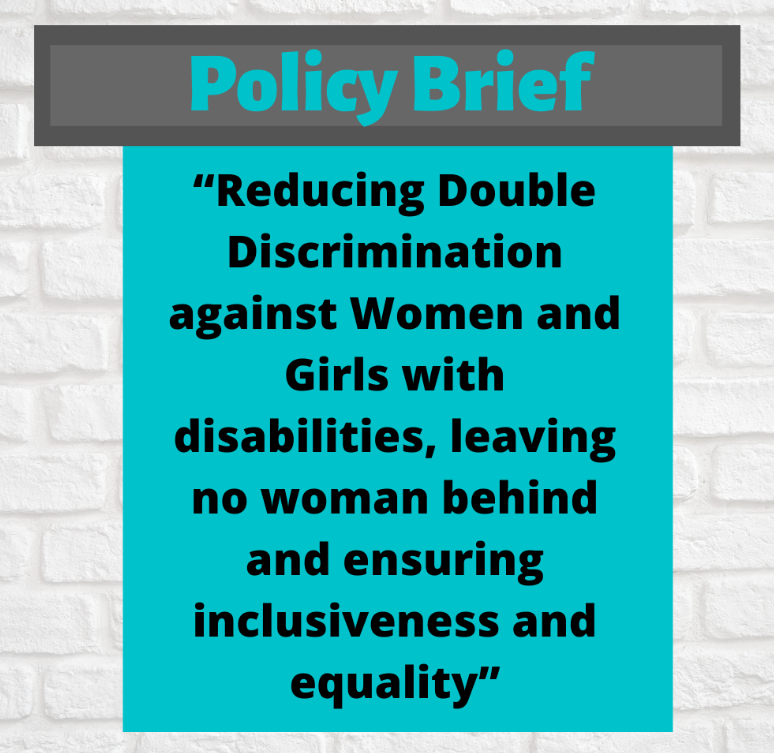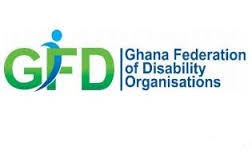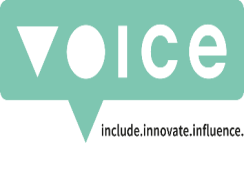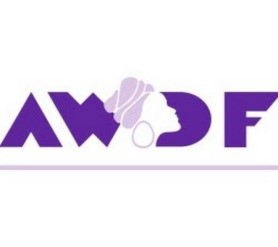
POLICY BRIEF: Reducing Double Discrimination against Women & Girls with Disabilities
This Policy Brief titled “Reducing Double Discrimination against Women and Girls with disabilities, leaving no woman behind and ensuring inclusiveness and equality” is developed and inspired by the preliminary findings of the Africa Regional report being developed by: The African and global partners of the “Leave No Woman Behind” project namely: The African Women’s Development and Communication Network (FEMNET), Global Call to Action Against Poverty (GCAP), the Ghana Federation of Disability Organizations (GFD), AMASBIF in Mali and Polycom Development in Kenya and SDGs Kenya Forum with funding support from VOICE Global and African Women Development Fund (AWDF).
It is a consolidation of key findings and policy demands by African women with disabilities and organizations of persons with disabilities from Kenya, Mali and Ghana. This information will be used by CSOs to engage with their governments at the July 2020 High Level Political Forum on Sustainable Development (HLPF) themed “Empowering people and ensuring inclusiveness and equality” of the United Nations in New York.
=> Double discrimination manifests as:-
- Negative attitudes towards women and girls with disabilities, depending on traits such as the nature of disability.
- It implies excessive or unfair mistreatment of women or girls because of the disability.
- Also implies that in addition to denying their rights simply because they are women or girls, their lives are made more difficult by the way society perceives, interprets and reacts to the form of disability.
- It means that women and girls with disabilities are denied their basic entitlements, privileges, opportunities and Rights.
=> Limited Political Representation
- Women with disability are not nominated to represent the political parties during elections, thus they barely have representation in the leadership structure of the community.
- Educational limitations imply that women with disabilities (WWDs) cannot meet the minimum requirements for candidates to hold political leadership positions.
- Financial limitations and lack of social support from political parties also bar them from competing favorably against other candidate.
=> High Levels of Violence experienced by women with disabilities
- More vulnerable as their disability increases their dependency on others and can be disempowering to them,
- Violence mainly occurs in all settings including at home, in the schools, at the community and work settings.
- Violence against women with disabilities can extend over larger periods, including through absence of mobility aids/assistive devices, laws enforcing deprivation of legal capacity and lack of access to information and counseling services.
- Violence against women as well as men with albinism is of particular concern here, and in certain regions in Africa they are exposed not only to stigma and discrimination but also to assault and killings.
=> Social Protection /poor infrastructure
- Most women with disabilities in the rural areas and in the slums cannot access Disability Cards
- Three out of every five (65%) women with disabilities living in slums face challenges of accessibility of their immediate surrounding environment.
- Poor Infrastructure such as poor drainage systems, inaccessibility of public means of transport and unaffordable water,
- These are hindrances to children going to school, women with disabilities doing care work at home, and limit their involvement with family and friends in social, recreational and civic activities in the community.
=> Special needs Education
- More than half of children with disabilities in African countries are in the mainstream school system, without the required amenities to meet their special needs.
- A quarter of children with disabilities in Africa are out of school because of lack of special needs amenities in the mainstream public schools.
- Up to 4% of children with disabilities who are unable to carry out their daily education activities are residing in informal settlements (slums) within urban areas, the most affected (19%) are those under the care of single women, or female headed households
=> Existing policy framework:
The 2030 Agenda for sustainable development (SDGs) provide the guiding principle of “Leave No one behind”. Cognizant of the fact that several African governments will be presenting their voluntary national review reports this year at the HLPF in New York from 12th-18th July 2019. The focus of this policy brief is on sustainable development Goals (SDGs 10) under review this year which covers reducing inequalities within and among countries.
- SDG Target 10b: Level of personal autonomy, individual rights and freedom from discrimination
- SDG Target 10b focused on the level of personal autonomy, individual rights and freedom from discrimination.
The Maputo Protocol provisions extend specific attention to:-
- Art. 3 – Right to Dignity: 3.1 Every woman shall have the right to dignity inherent in a human being and to the recognition and protection of her human and legal rights.
- 3.4 States Parties shall adopt and implement appropriate measures to ensure the protection of every woman’s right to respect for her dignity and protection of women from all forms of violence, particularly sexual and verbal violence.
- Art. 23 (on special protection of women with disabilities), in a similar vein, requires state parties to ‘ensure the right of women with disabilities to freedom from violence, including sexual abuse, discrimination based on disability and the right to be treated with dignity’ (Art. 23b).
The African Charter on Human & People’s Rights (ACHPR 2017):-
- Non-discrimination principle requires that states take the necessary measures to ensure the rights of all women are protected, ‘irrespective of disability, age, culture, marital status, socio-economic status, colour, national origin, ethnicity, profession, political opinions, or any other status, or any other factor that could lead to discrimination against them.
- The due diligence principle; requires that states adopt the necessary legislative and regulatory measures to act with due diligence in the prevention, investigation, prosecution, punishment and provisions of remedies in cases of violations and discrimination committed by state as well as non-state actors. This is important for holding states to account for violations committed by non-state actors, and in particular for violations in the private sphere.
Key demands:
In order to realize the aspirations of the “Leave No one behind” principle in the implementation of the SDGs and Agenda 2063, African member states should strengthen their commitment towards reducing inequalities within countries for the achievement of SDG 10, 4 and 8, by empowering vulnerable groups of people such as women and girls with disabilities and ensuring inclusiveness and achievement of gender equality at all levels of society.
Specifically, that the African member states; should fulfill their general obligations as follows:
- To respect: requires states to refrain from hindering, directly or indirectly, women’s rights and to ensure women with disabilities are duly informed. These obligations entail removing impediments that limit women and girls with disabilities from effectively claiming their freedoms and rights and having control and choice. Impediments may come from the state itself, from third parties or from society at large
- To protect: requires states to take the necessary measures to prevent third parties from interfering with the enjoyment of women’s rights. The obligation to protect and to promote women’s enjoyment of all rights requires states to both remove obstacles and create an enabling environment.
- To promote: requires states to create the legal, economic and social conditions that enable women to exercise their full rights as well as to enjoy them. Eliminating stigmatization and discrimination related to disability is essential for the promotion of women and girls’ rights to development.
- To fulfill: requires states to adopt relevant laws, policies and programmes that ensure the fulfillment de jure and de facto of women’s rights. This includes the allocation of sufficient and available resources for the full realization of these rights. This entails supporting empowerment of women with disabilities; sensitising and educating communities, involving religious leaders, traditional chiefs and political leaders and training public service workers to become more sensitive and responsive to the special needs of women with disabilities.
The right to access to public information and public services entails that these services are ensured ‘without any discrimination relating to age, health condition, disability, marital status or place of residence’, and this must be guaranteed to all women, especially rural women and women in slums.
Specific states obligations:
A) Social Protection, enabling legal and political framework
- Provide a legal and social environment that is conducive to the exercise by women with disabilities their full rights to development, including,
- If necessary, revisiting discriminative and restrictive laws, policies and administrative procedures.
- Take all appropriate measures to remove obstacles arising from disability, as well as economic and geographical barriers facing especially young women, adolescent girls and all women with disabilities living in rural and slum areas.
- Mechanisms
- Allocation of financial resources: Allocate adequate financial resources to strengthening public services meeting the needs of women with disabilities.
B) Compliance with submission of periodic reports:
- Establish accountability mechanisms, implementation standards and guidelines, a monitoring and evaluation framework and redress
- Submit in a timely manner, periodic reports, on the legislative and other measures taken towards the full realization of the rights of women with disabilities, as provided in the Maputo Protocol, taking into account and in compliance with the ACHPR guidelines for reporting.
C) Address obstacles to access to information and education
- Take all appropriate measures (through policies, sensitization and civic education programmes) to remove all obstacles to the enjoyment by women with disabilities of their rights at all levels.
- Training of public service providers on the principle of non-discrimination, confidentiality and respect for the autonomy, freedom to make informed decisions and informed consent of women and girls with disabilities.
- Ensure provision of comprehensive information and education on human rights to women with disabilities in rural areas and urban slums and especially adolescent girls and young women with disabilities.
- Ensure educational institutions at primary, secondary, tertiary levels and alternative education systems have special interventions to address issues affecting women and girls with disabilities in their programmes, and ensure these are also implemented to cater for children and women with disabilities in private schools, including faith-based schools.
- Ensure enabling and inclusive environment in education institutions to support access by people with disabilities through the design and development of educational infrastructures and equipment.
- The enactment, strengthening and implementation of laws and policies that address key barriers to access and completion of education especially for young girls.
- Promote life-long inclusive and quality education for all, including marginalized and vulnerable groups especially Girls and WWDs.
- Strengthen and invest in alternative education system and vocational training including apprenticeship and skills based certification to reduce unemployment and pay gaps for WWDs.
- Put in place alternative education opportunities for people with psychosocial impairments
- The inclusive education policy should be put in place for a flexible educational timeline and curriculum for people with psychosocial, cognitive and mental disabilities to learn.
- Special needs for education officers placed in schools where WWDs are employed
- Public schools within the slums are equipped with special needs amenities (ramps, toilets, brail, simplified instruction materials, sign language etc), to accommodate children with disabilities.
- Strengthen and invest in alternative education system and vocational training including apprenticeship and skills based certification for Women With Disabilities
D) Remove obstacles for Political Participation of women with disabilities
- Ensure meaningful participation of women with disabilities through the implementation of legal instruments and policies, that promote their rights,
- Political parties should provide financial support the WWDs who want to rise up on the political ladder
- Build Capacity of WWDs in political leadership, effective campaigns and the stronger provisions in the affirmative action bills, laws, policies and programs
- Raise public awareness that WWDs are normal, they are capable, to reduce stigma against WWDs
- The ministry of Gender and social protection should offer a position for appointment of a WWD to key decision making position. Government appointees to the lower/sub national assemblies and government system should be guided by a clear policy, or by- law.
- Nomination of women with disabilities from the slums by political parties to represent the interest of the target group in the Senate.
- Financial and social support from political parties to facilitate women with disabilities living in the slums to compete effectively.
E) Ensure Social Protection programs benefit women with disabilities:
- Ensure total Inclusiveness; “leave no woman behind”, in all aspects of life.
- Sanitation in all places of convenience should have separate toilets that accommodate wheel chairs
- Reasonable accommodation in the implementation of all policies, taking into consideration the peculiar needs of each individual with disability.
- Social services offices to work closely with the chiefs to ensure that all persons with disabilities especially women in slums are registered and access the Disability cards.
- Ensure total Inclusiveness; “leave no woman behind”, in all aspects of life, especially by improving sanitation and accessibility in all buildings and places of convenience to have ramps and separate toilets that accommodate wheel chair users.
POLICY BRIEF –Issue 01
![]()




Supported by








